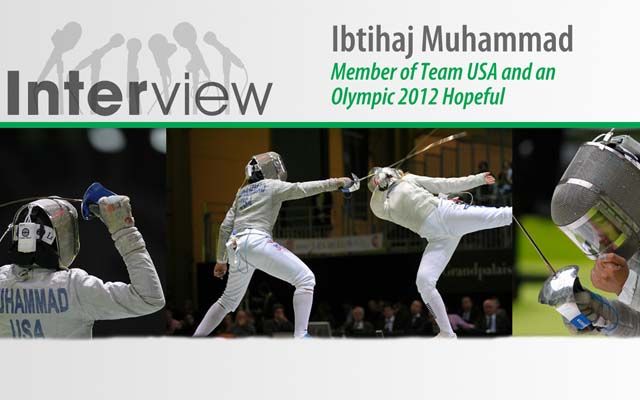“Fiqh of the minorities” (Fiqh al-Aqalliyyat) is a specific discipline that takes into account the relationship between the religious ruling and the conditions of the community, including the location where it exists. It is a fiqh that applies to a specific group of people living under particular conditions with special needs that may not be appropriate for other communities. The jurist in such a situation must not only have a strong background in Islamic sciences, but must also be well versed in sociology, economics, politics, and international relations relating to that community. The purpose of Fiqh al-Aqalliyyat is not to recreate Islam; rather it is a set of methodologies that govern how a jurist would work within the flexibility of the religion to best apply it to particular circumstances. Some of the methodologies include:
Redefining the Question
A wrong question can lead to a wrong answer. Before answering a question, the jurist must know the problem that caused the question and redefine the question to deal with the core issue involved. When the people asked the Prophet how the moon worked, their core issue was to understand its purpose. The answer came, “They ask you concerning the new moons. Say: they are but signs to mark fixed periods of time for people and pilgrimage” (Al-Quran, 2:189). The Quran reworked the question and answered regarding the purpose of the cycle of new moons, not regarding the scientific mechanism that runs it.
Example #1: A questioner asks, “Is it forbidden (haram) for a Muslim woman to be married to a non Muslim, and what should one do?”
The standard answer based on the Quran is that it is forbidden for a Muslim woman to be married to a non-Muslim, so she should be divorced immediately. However, in this particular case, the circumstances are as follows:
The woman has just converted to Islam, and she has a husband and two young kids. The husband is very supportive, but is not at this time interested in converting. The woman was told immediately after converting that she had to divorce her husband of 20 years.
Within these circumstances, the question should have been, “Is it worse for a Muslim woman to be married to a non-Muslim husband or for her to leave the religion?”
The answer is that leaving the religion is much worse, so it is acceptable for her to continue with her marriage, and she is responsible before Allah on Judgment Day.
Example #2: A questioner asks: “Is it forbidden to be involved in an un-Islamic government or institution?”
The standard Fiqh answer would be that yes, it is forbidden, because you do not want to be corrupted by the system or be seen as supporting a corrupt system in front of other weaker Muslims who might be negatively influenced. However, in this particular case the circumstances are as follows:
The government’s actions can be influenced by being involved in the system. The government has secular authority over the Muslims in that country and gives them the right to freely practice their religion. The Muslims are awarded by the government the right to hold public office. The government currently exerts laws and policies that are not in the best interest of the global or local Muslim community. The Muslims have the obligation of spreading their religion.
With this information, the question must be redefined to reflect the totality of the situation: Is it permissible for Muslims to participate in the political arena of a democratic government in order to affect policy in favor of the Muslims, or is it better to not get involved for fear of being corrupted by the system?
Under these circumstances the answer is that it is permissible and an obligation on the part of the Muslim community to get involved as long as they are not forced to sacrifice their integrity. For the community, it would be considered a type of jihad. If a particular member of the community feels himself/herself to be too weak in religion, then there is no harm if that person does not directly participate, but supports financially or in other ways instead.
Learning from Prior Rulings
The golden rule of Fiqh is “changes of Al-‘Ahkam (judgments) are permissible with the change in times.” The schools of fiqh and the past judgments were different because they were generated for different times and different people. For this reason, a jurist should not apply prior historical rulings to modern situations without a careful analysis of the circumstances and reasoning that generated the prior ruling.
For example, the Prophet (pbuh) first forbade visiting cemeteries; then he allowed it later saying, “Formerly, I forbade you from visiting cemeteries. You may visit them for they remind you of Al Akhira (i.e. the next life). The reason is that there were some bad pagan customs surrounding cemeteries, and he wanted to distance his people from that. After a time when the Muslims were stronger in their belief, the restriction was no longer necessary, so it was removed. Indeed, there are many documented cases of the four enlightened caliphs making changes to the established rulings. Occasionally, minor or major changes were even made to the rulings of the Prophet (pbuh), because the circumstances had changed.
Things to keep in mind regarding the early Jurists rulings:
Many early scholars did not thoroughly document how they arrived at rulings.
Many mistakes are found in historical books on fiqh because the jurists did not always have access to all of the relevant material. It has been only recently that jurists have been able to make computer searches to speed up research on issues.
The Muslims were not under conditions such that they had to escape to non-Islamic countries seeking lost rights or escaping from persecution.
The concept of citizenship, duties of a citizen, international law, and diplomatic relations did not exist in the form that they are today.
In ancient times, the language of military power was supreme. A country’s borders were only established because the military found it difficult to move forwards.
Globalization did not exist. People in ancient times lived on a planet of islands.
Therefore, we should not fight each other over the literal rulings of the past. Rather, we should study the methodology, wisdom, and intent of the prior rulings to best understand how they should apply to the modern world. The mere stress on minor issues of rulings without understanding intent will inevitably cause us to become like the people of “Al-Baqarah”.
Understanding the Purpose and Intent
The central theme of fiqh is: the performance of man as inheritor of the earth particularly from the point of view of man’s compliance or resistance to the divine purpose of the creation and how he falls short of that purpose. The debate regarding the realties of man’s mind and our abilities to evaluate ourselves independent of revaluation has gone on for centuries. Islam recognizes the role of the human intellect as part of the decision-making process. Also, we are provided with two books to help guide us in our decisions, the revelation (Quran) and the moving cosmos, which is the sum total of all aspects of life. The study of each book leads to a better understanding of the other. Some of the criteria for the method of study that emerge to facilitate a better understanding of ultimate purposes are:
Realize the unity of message and structure within the Quran and studying its application by the Prophet (pbuh) in specific practical everyday matters. We should hold everything to the benchmark of the Quran. If a saying does not appear to be in keeping with the Quran, we should follow the Quran in such circumstances and simply acknowledge that we might not have all the information surrounding that Sunnah (i.e. the circumstances that generated it).
Be in line with the concept that the Quran and the Prophethood in general are a completion of the legacy of past prophets. The message and purpose have always remained the same but the form has changed as human society has matured.
Grasp the delicate differences between humanity and the individual and how the Quran relates to each.
Be alert to the inherit logic of the Quran and the parallel nature of that logic for both capturing the divine purpose and the spiritual logic of the All Knowing, and yet speaking to and being logical to the unlettered human mind.
Adopt the Quranic concept of geography on the basis that the world is completely for Allah, and so the Quran is inherently a global message and should be treated and understood as such.
Contemplate the facts of life, so that when a question is formulated, it is done while taking into consideration all aspects involved.
Understand the aims and purposes of the Shari’ah as well as the resulting outcomes.
Test the fiqh verdicts to evaluate their validity by seeing if they provoke the desired outcome of bringing people closer to the pure path of Allah.
A Fundamental Rule in Relations with Others
The following two Quranic verses express the golden rule defining the relationship between Muslims and others:
“God does not forbid you to be kind and equitable to those who have neither fought you on account of your religion nor driven you from your homes. God loves the equitable. But God only forbids you to be allies with those who have fought you because of your religion and driven you from your homes and abetted others to do so. Those that make friends with them are wrongdoers” (Al-Quran, al-Mumtahanah: 8-9).
These two verses set out the moral and legal foundation principle with which the Muslims must comply in their dealings with people of other faiths: kindness and justice towards all non-belligerent communities. All developments and new situations must be judged according to this principle. The relationship between Muslims and non-Muslims cannot deviate from the main framework.
Forbearance
Even if the Muslim minority’s proactive participation with the majority should entail certain courtesies that may blur or dilute some aspects of the minority’s behavior or qualities, other than the fundamentals of its faith, it would be acceptable and pardonable because without such participation a greater good would be forfeited. This is not a new situation for Islamic fiqh. It was something that Muslim scholars have tolerated ever since the end of the era of the first four caliphs. Muslims were facing two choices: affirmative participation with certain concessions demanded by the reality of the prevailing tyranny or passive association and withdrawal, leaving the Ummah easy prey for tyrants. They opted for the former because of what they knew of Islam’s positive and flexible attitude.
The Example of Abyssinia
The example we have of Muslims taking refuge in another country to protect themselves and their religion is the emigration to Abyssinia. Like today, the Muslims at that time were being persecuted in their homeland, and the Prophet (pbuh) sent them to Abyssinia because their rights would be protected there.
The Quraish (the leading tribe of Makkah) sent two emissaries to make a plea before the Abyssinia king Negus to return the refugees back to Quraish. Negus, however, was not about to make a judgment on people in absentia. So after hearing the arguments of the emissaries (Amr, and Abdullah), he asked to hear the defense of the Muslims. When Negus’s messenger informed the Muslims of Negus’s decision to hear them, they had a discussion amongst themselves and decided to stick to the truth no matter what. They also agreed upon Ja’far ibnu ‘Abi Talib as a spokesperson.
When they came before the King, the Muslims didn’t bow to the king, and when asked, they explained that they only bowed to Allah. Then Jafar said, “O King! We were a people in ignorance, we worshipped idols, rejected kin, abused our neighbors, and the strong among us oppressed the weak. We continued so until Allah sent us a prophet from among us. He invited us to worship the one God, leaving the idols of wood and stone, and to tell the truth, guard the trust, to keep good relations with both family and neighbors, to give charity. We have come to your country, chosen you and not anybody else, and desire being near you, and hope that we would not be treated unfairly in your audience, O king.”
The king was impressed with the Muslims argument and granted them “political asylum”. During their stay, they developed very strong relations with the Negus and his people, and when his throne was challenged, they prayed for him. Umm Salamah said, “We prayed to God to help the Negus prevail over his rivals and confirm his rule in his country.” The logical consequence of that relationship was that the Negus eventually embraced the religion of Islam.
Some lessons to learn
We should drop concepts like Darul-Islam and Darul-Kufr and consider all land to be for God as the Quran says:
“Moses said to his people: “Seek support from God and be patient, surly the earth is God’s to grant to the servants of his choice, and the best is for righteous” (Al-Quran, 7:128).
Existence of Muslims in any country should be planned on the basis of being permanent, not temporary or accidental. They (Muslims) must be a contributing factor to the society, should work together within the established system to better their position as long as they do not get so carried away that they sacrifice the core pillar of their religion.
We must present Islam in our words and deeds in the best possible way so that we gain the interest and respect of those around us.
Concluding Remarks
Fiqh relating to Muslim minorities is essentially derived from the general fiqh of Islam as a whole. It is in a similar category to the fiqh of fundamentals, priorities (al-awlawiyyat), contrasts (al-muwazanah), or realities, or to comparative fiqh, or the fiqh of ethics, etc. Accordingly, although this branch of fiqh includes several aspects of the general fiqh, it focuses specifically on issues affecting Muslim minorities living among non-Muslim majorities and endeavoring to preserve their identities under somewhat different customs, legislation, and laws.
“Fiqh for Minorities” is a collective discipline and should not be practiced on an individual basis. It is multifaceted, with differing aspects that render any individualistic approach potentially perilous. It comprises political, economic, cultural, social, and legal elements. The fiqh side of it requires appropriate treatment of facts and issues. No treatment can be correct without consideration of all aspects of the matter in question, a task that cannot be completely fulfilled by a single individual. It requires the collective input of several scientists and specialists from different social and religious disciplines. These people need to scrutinize and study the issue from all angles, especially those of a general nature, that affect the future of Muslim minorities in order to articulate the problems accurately and seek their solutions in fiqh. Indeed, the fiqh derived for these cases should not be based on partial evidence or facts commonly approved by jurists, but should be broadly based on the universal fundamentals of the Quran and Sunnah, as well as the established values and objectives (maqasid) of the Shariah.
Finally, what we have said so far regarding the fiqh of Muslim minorities is a mere introduction—it is intended to provoke interest in issues peculiar to Muslim minorities. Since this fiqh is open to debate and discussion, so should be its development, the documentation of its literature, and the elaboration of its means, methods, and tools. The author will be happy to receive from readers any suggestions or comments that may assist in further research and analysis.





